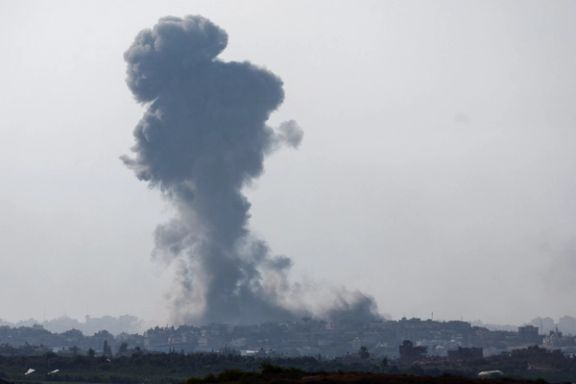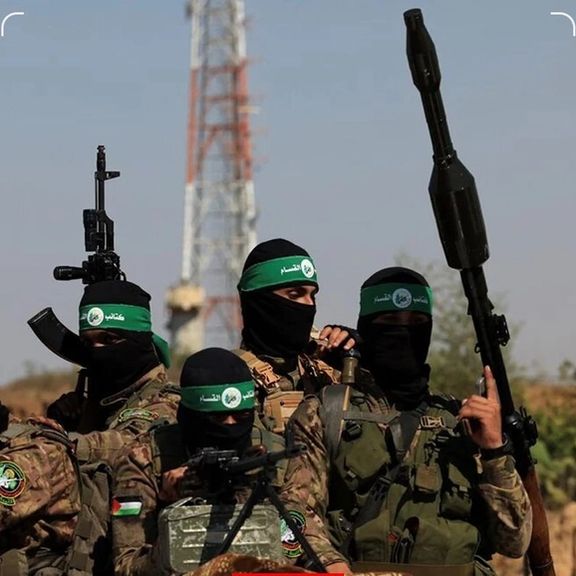Iran Regime Mouthpiece Says ‘No War On Behalf’ Of Others

While Iran’s regime has been increasingly insisting that it has no proxy forces in the region, its militant allies have been targeting Israel and US forces.

While Iran’s regime has been increasingly insisting that it has no proxy forces in the region, its militant allies have been targeting Israel and US forces.
Houthi forces in Yemen, armed with Iranian weapons, launched drones toward the Israeli port of Eilat on Tuesday that were intercepted over the Red Sea. At the same times, another drone attack targeted the Ain al-Asad air base in Iraq, where US forces are stationed. An Iraqi Islamist group aligned with Iran took responsibility for the strike.
However, Iran’s foreign minister Hossein Amir-Abdollahian told CNN last week that the Islamic Republic was not involved in recent attacks against US bases, insisting that no group takes orders from Tehran, and that Iran has no proxies in the region.
For years, the Iranian regime has been making triumphant statements about its leadership of the “resistance axis”, that includes militant groups, such as the Lebanese Hezbollah, Iraqi Shiite militias, the Houthis in Yemen and the Syrian regime, to name the most prominent forces supported financially and militarily by Tehran.
The Iranian regime has become the focus of attention in the West after the terror attack on Israel by Hamas, another militant group it supports. Although voicing unequivocal support for Hamas, Tehran has been denying any role in the bloody invasion that killed around 1,400 Israelis.

The United States has warned Iran not to escalate the Gaza war and has dispatched substantial naval forces to the region as a deterrent to Tehran and its most powerful proxy, the Hezbollah, which can open a second front against Israel in the north.
Notably, Kayhan, the most hardliner newspaper in Tehran on Tuesday declared that the Islamic Republic will not enter a war for any other nation.
Kayhan stated, “The discourse of the Islamic Revolution is based on awakening and empowering nations. Moreover, it supports and strengthens any oppressed people who desire freedom. However, it never engages in any war on behalf of any other nation and this exact strategy has effectively thwarted various scenarios presented by the United States against Iran in the West Asian region.”
Iran’s strategy since the 1980s, when it helped establish the Hezbollah, has been to use militant and violent groups to build influence around the world and target the interests of Israel and Western countries.
Kayhan is financed by the office of Iran’s ruler Ali Khamenei and is seen as reflecting the views of his office, especially when promulgating hardline foreign policy dictums.
While Hezbollah has had skirmishes with Israeli forces in the past three weeks, it has so far avoided a full-fledged war. Some observers argue that as time goes on and the Israeli ground offensive in Gaza progresses, the opportunity and perhaps the will for the Shiite group to risk total war with Israel decreases.
Israel said on Tuesday that its forces were already attacking Hamas gunmen inside the militants' vast tunnel network in Gaza after Prime Minister Benjamin Netanyahu dismissed calls for a halt to fighting to ease a worsening humanitarian crisis.
The gradual Israeli progress and Hezbollah inaction influence calculations in Tehran, which prefers to use proxies to a limited degree to show support for Hamas but avoid a full escalation that can endanger to regime.
Houthis also escalated clashes with Saudi Arabia in Yemen, after nearly two years of relative calm. They had already fired cruise missiles and drones, potentially toward Israel on October 19 that were intercepted by a US Navy warship.